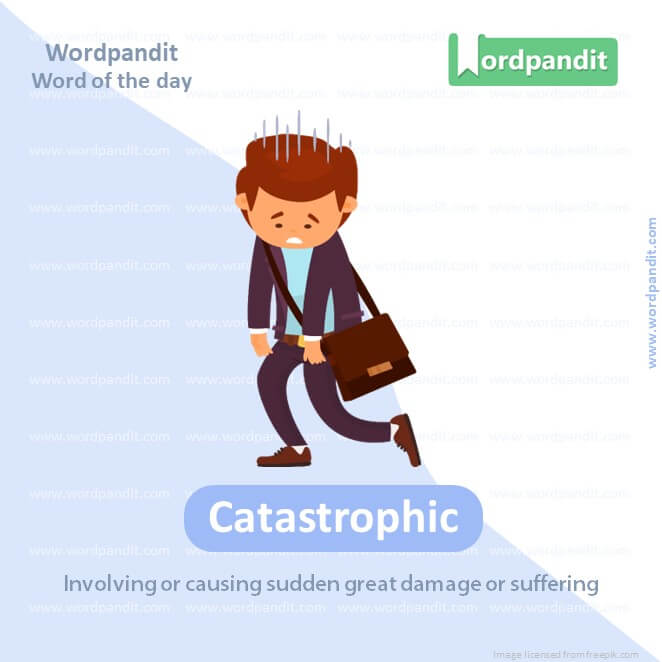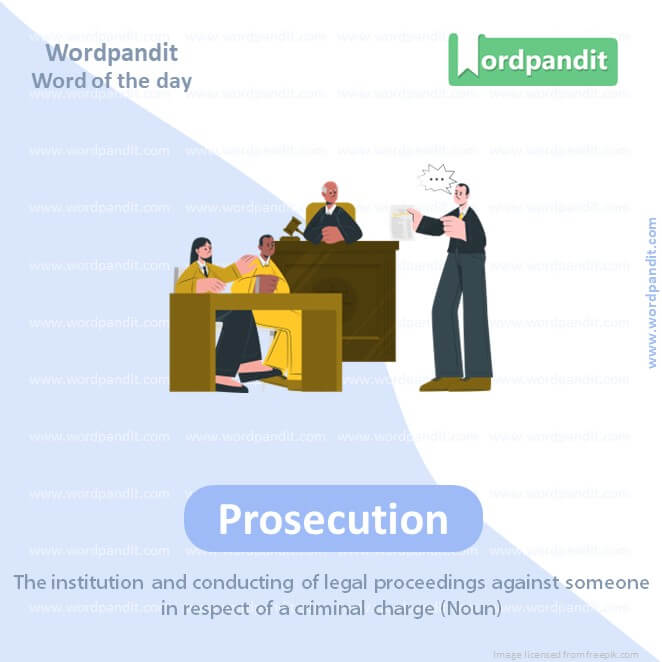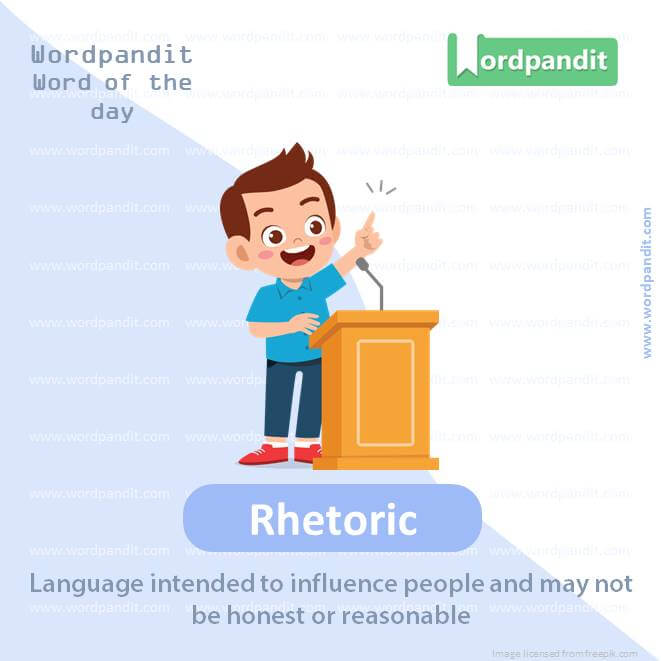Daily Vocabulary Words: List of Daily Used Words in Leading International Newspapers
Hi there. Welcome to this special section @ Wordpandit.
Our endeavour here is very simple: to highlight important daily vocabulary words, which you would come across in leading newspapers in the country. We have included the following newspapers in our selection:
• The New York Times
• The Washington Post
• Scientific American
• BBC
• The Guardian
• Psychology Today
• Wall Street Journal
• The Economist
We are putting in extensive work for developing your vocabulary. All you have got to do is be regular with this section and check out this post on a daily basis. This is your repository of words that are commonly used and essentially, we are posting a list of daily used words. Hence, this has significant practical application as it teaches you words that are used commonly in leading publications mentioned above.
Visit the website daily to learn words from leading international newspapers.
WORD-1: Repercussions
CONTEXT: The decision to cut down the forest had far-reaching repercussions on the local ecosystem, leading to the decline of several species and increased soil erosion.
SOURCE: Example Sentence
EXPLANATORY PARAGRAPH: Imagine throwing a stone into a calm lake and watching the ripples spread out in all directions. Those ripples are like “repercussions,” which are the effects or consequences that result from an action, decision, or event.
MEANING: The effects or consequences of an action, decision, or event, typically indirect or unintended (noun).
PRONUNCIATION: ree-per-KUHSHUHNS
SYNONYMS: Consequences, aftermath, outcomes, results, implications
USAGE EXAMPLES:
1. The economic repercussions of the pandemic were felt worldwide.
2. The new policy had serious repercussions for small businesses.
3. His reckless behavior had severe repercussions for his career.
4. We must consider the potential repercussions before making a decision.
WORD-2: Indignation
CONTEXT: She felt a surge of indignation when she discovered that her ideas had been plagiarized by a colleague.
SOURCE: Example Sentence
EXPLANATORY PARAGRAPH: Imagine someone at school took your lunch without asking, and you felt really upset and angry because it wasn’t fair. “Indignation” is the feeling you get when something happens that is not right or fair, and it makes you feel very strongly that you want to fix it.
MEANING: Anger or annoyance provoked by what is perceived as unfair treatment (noun).
PRONUNCIATION: in-dig-NAY-shun
SYNONYMS: Anger, outrage, resentment, irritation, displeasure
USAGE EXAMPLES:
1. She felt a strong sense of indignation when she was wrongly accused.
2. His actions caused widespread indignation among the community.
3. He spoke with indignation about the injustice he witnessed.
4. There was a note of indignation in her voice as she spoke about the incident.
WORD-3: Hemorrhages
CONTEXT: The patient experienced severe hemorrhages following the surgery, requiring immediate medical attention.
SOURCE: Example Sentence
EXPLANATORY PARAGRAPH: Imagine a burst pipe in your house causing water to flow out uncontrollably. “Haemorrhages” are like that, but with blood. It refers to the excessive bleeding, typically internal, from a ruptured blood vessel.
MEANING: Excessive bleeding, typically internal, from a ruptured blood vessel (noun).
PRONUNCIATION: HEE-muh-rih-jiz
SYNONYMS: Bleeding, hemorrhaging, blood loss, discharge
USAGE EXAMPLES:
1. The trauma caused severe haemorrhages in the patient’s brain.
2. Internal haemorrhages can be life-threatening if not treated promptly.
3. The accident resulted in multiple haemorrhages throughout his body.
4. The condition causes frequent nosebleeds and gastrointestinal haemorrhages.

WORD-4: Soared
CONTEXT: After the successful launch of their new product, sales soared, exceeding all expectations.
SOURCE: Example Sentence
EXPLANATORY PARAGRAPH: Imagine a bird spreading its wings and flying high up into the sky. “Soared” is like that but for numbers, indicating a rapid increase or rise to a great height.
MEANING: To rise rapidly, especially to a great height (verb).
PRONUNCIATION: sôrd
SYNONYMS: Increased, climbed, escalated, surged, rocketed
USAGE EXAMPLES:
1. Stock prices soared after the company announced record profits.
2. Temperatures soared to over 100 degrees Fahrenheit during the heatwave.
3. Interest in the event soared following the release of the promotional video.
4. The athlete’s popularity soared after winning the championship.

WORD-5: Catastrophic
CONTEXT: The catastrophic explosion at the chemical plant resulted in widespread damage and numerous casualties.
SOURCE: Example Sentence
EXPLANATORY PARAGRAPH: Imagine a series of unfortunate events leading to a massive disaster. That’s what “catastrophic” describes—an event causing great and usually sudden damage or suffering.
MEANING: Involving or causing sudden great damage or suffering.
PRONUNCIATION: kat-uh-STROH-fik
SYNONYMS: Disastrous, devastating, calamitous, ruinous, tragic
USAGE EXAMPLES:
1. The hurricane had a catastrophic impact on coastal communities.
2. The failure of the dam would be catastrophic for the entire region.
3. The economic downturn resulted in catastrophic losses for many businesses.
4. The environmental consequences of the oil spill were catastrophic.

WORD-6: Prosecution
CONTEXT: The prosecution presented overwhelming evidence against the defendant, leaving little doubt about his guilt.
SOURCE: Example Sentence
EXPLANATORY PARAGRAPH: Imagine someone accusing another person of stealing and then gathering evidence to prove it. That’s what “prosecution” does—it’s the process of formally accusing someone of a crime and presenting evidence in court.
MEANING: The institution and conducting of legal proceedings against someone
in respect of a criminal charge (Noun).
PRONUNCIATION: prah-suh-KYOO-shun
SYNONYMS: Legal action, indictment, lawsuit, litigation, accusation
USAGE EXAMPLES:
1. The prosecution called several witnesses to testify against the defendant.
2. The prosecution presented a compelling case against the accused.
3. The attorney general oversees all federal prosecutions in the country.
4. The prosecution sought the maximum penalty for the defendant’s crimes.
WORD-7: Outcry
CONTEXT: There was a public outcry following the release of the controversial documentary, demanding action from authorities.
SOURCE: Example Sentence
EXPLANATORY PARAGRAPH: Imagine a large group of people shouting and protesting against something they strongly disagree with. That’s what “outcry” refers to—a strong expression of public disapproval or anger.
MEANING: A strong expression of public disapproval or anger (noun).
PRONUNCIATION: out-krahy
SYNONYMS: Protest, uproar, outcry, outcry, clamor, dissent
USAGE EXAMPLES:
1. There was a public outcry against the government’s decision to raise taxes.
2. The announcement sparked an immediate outcry from environmental groups.
3. The proposed law resulted in widespread public outcry.
4. The company’s decision to lay off workers led to a public outcry for better labor protections.

WORD-8: Rhetoric
CONTEXT: The politician’s speech was full of empty rhetoric, lacking concrete plans or solutions to the country’s problems.
SOURCE: Example Sentence
EXPLANATORY PARAGRAPH: Imagine someone speaking persuasively, using language that sounds good but lacks substance or sincerity. That’s “rhetoric”—the art of effective or persuasive speaking or writing, often without meaningful content.
MEANING: Language intended to influence people and may not be honest or reasonable.
PRONUNCIATION: RET-er-ik
SYNONYMS: Oratory, speechifying, bombast, verbosity, grandiloquence
USAGE EXAMPLES:
1. His campaign was criticized for relying on empty rhetoric rather than concrete policies.
2. The debate was filled with political rhetoric and personal attacks.
3. She dismissed his promises as mere rhetoric without any real substance.
4. His speeches were known for their soaring rhetoric and inspirational tone.

WORD-9: Deportations
CONTEXT: The government announced a crackdown on illegal immigration, leading to a significant increase in deportations of undocumented immigrants.
SOURCE: Example Sentence
EXPLANATORY PARAGRAPH: Imagine being forced to leave your home and go to another country, usually because you don’t have the legal right to stay. That’s what “deportations” are—it’s the action of expelling someone from a country, typically for violating immigration laws.
MEANING: The action of expelling someone from a country, typically for violating immigration laws (noun).
PRONUNCIATION: dee-pawr-TEY-shuhnz
SYNONYMS: Expulsions, removals, banishments, exiles, evictions
USAGE EXAMPLES:
1. The government announced a new policy aimed at increasing deportations of undocumented immigrants.
2. The recent wave of deportations has led to protests and demonstrations.
3. He faced deportation after overstaying his visa.
4. Deportations of political dissidents were common during the dictatorship.
WORD-10: Lurching
CONTEXT: The ship hit rough waters, causing it to start lurching from side to side, sending passengers scrambling for safety.
SOURCE: Example Sentence
EXPLANATORY PARAGRAPH: Imagine being on a boat during a storm, and the sudden, unsteady movements of the vessel as it struggles against the waves. That unsteady movement is called “lurching”—it’s a sudden, uncontrolled movement, typically forward or sideways.
MEANING: A sudden, uncontrolled movement, typically forward or sideways (noun).
PRONUNCIATION: LURCH-ing
SYNONYMS: Swaying, pitching, rocking, rolling, staggering
USAGE EXAMPLES:
1. The car came to a sudden stop, sending the passengers lurching forward.
2. The boat began lurching in the heavy seas, causing some passengers to become seasick.
3. The sudden lurching of the train caught many passengers off guard.
4. She felt herself lurching sideways as the bicycle hit a pothole.
Vocabulary Meaning and Examples
In the fascinating world of language learning, a method particularly impactful is learning ‘vocabulary meaning and examples’. Harnessing this dual approach of understanding words through definitions and relevant examples yields a sound vocabulary grasp. Let’s explore how we can effectively learn vocabulary using ‘meaning and examples’.
Foremost, recognizing ‘meaning and examples’ involves more than just a surface glance at the definition. It requires an engaged interaction with the word, placing it within a proper context. This enriches comprehension and facilitates an innate understanding of the word’s applications.
The process of learning ‘meaning and examples’ is made highly effective through varied resources. Reading literature, online articles, and language learning platforms offer numerous examples enriching the meanings. By frequently encountering a word in various contexts, the understanding of the ‘meaning and examples’ deepens, imprinting the word into long-term memory.
When learning ‘meaning and examples’, creating personal sentences is recommended. Develop your own examples using the given word. This personal connection between learned vocabulary and your everyday life context strengthens both familiarity and recall.
Moreover, taking notes while studying ‘meaning and examples’ goes a long way in mastering vocabulary. Jotting down the definition and a couple of examples for reference leads to better recall during revisions.
Finally, teach to learn. A tried-and-true method to solidify ‘meaning and examples’ is by explaining the word to someone else. This exercise forces you to articulate the word’s usage and understanding clearly, embedding it further in your memory.
In conclusion, the journey to learn ‘vocabulary meaning and examples’ is a rewarding process that involves a multifaceted approach. As you dive into the rich experience of understanding words through ‘meaning and examples’, you uncover the nuance and depth of language, enabling you to master it in its true sense.













